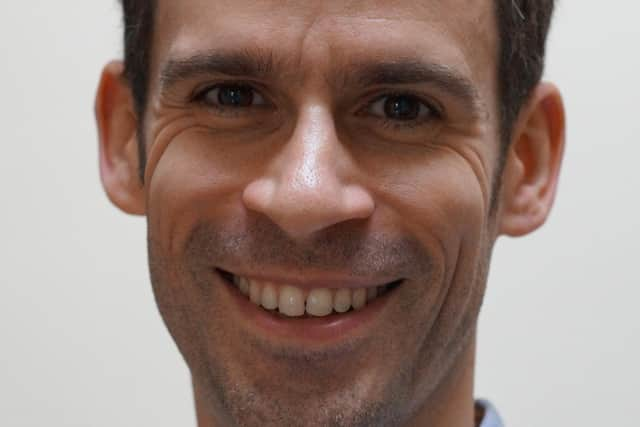Cost of living crisis is symptom of growing inequality - Jamie Livingstone
Times are tough for many people, including a growing number who may have had little cause for worry before. Some may well be questioning the level of tax they will be asked to pay. But would you consider your tax contribution to be a “burden” if you could draw a line between it and an intervention that prevents a child from having to go to school hungry? Or if you knew it was helping an unpaid carer to turn the heating on for their loved one?
How about if you could see your tax pounds helping just one of the millions of people standing on the precipice of famine in East Africa because of the climate wrecking emissions of countries, including Scotland? Of course, it’s not that simple. Our tax is spent on a multitude of things.
Advertisement
Hide AdAdvertisement
Hide AdWe also can’t be sure it is always spent as effectively as it might be. But for all these caveats, the inescapable fact is that tax is a vital tool in building the fairer and greener society most of us say we want. Ideally, our economy would share its rewards much more evenly from the start, but too often it fails to do so. Globally, the “cost of living” crisis is a symptom of the growing inequality crisis.


Perversely, we are all – whether we like it or not – required to contribute towards the spiralling wealth of billionaires and the mega-profits of corporates, while they cash-in on rising prices. At the same time levels of extreme poverty are surging, reversing decades of decline. Our already extremely unequal world is now even more so.
Those on low incomes in Scotland, including those who care for someone, are sounding the alarm and Scotland’s Children’s Commissioner says that what he is “seeing and hearing” from children is “really terrifying”. Faced with such glaring need, all governments must choose to use tax to protect people.
The UK Chancellor rightly asked for a bit more money from those who can afford it, while extending the windfall tax on oil and gas companies and reducing Capital Gains Tax allowances. But with a damaging spending squeeze to come, he should have done much more, especially on taxing wealth.
Jeremy Hunt’s decisions on Income Tax don’t automatically apply in Scotland, so the Scottish Government has the chance to do better when it publishes its Budget on December 15. It describes the financial context as “by far, the most challenging since devolution”, with 40-year high inflation and the knock-on efforts of nurses, teachers and others to secure much-needed pay rises. But they can use this Budget to increase resources for the next financial year by using devolved taxes, building on an approach to tax which has been marginally more progressive in recent years when compared to the rest of the UK.
Ministers must now go further and use all of their existing tax levers to ensure those with the most pay more to fund the public services and social security that those on low-incomes are made to rely on disproportionately. But they must also place Scotland on a path towards new and fairer taxation on wealth and on carbon emissions.
Too many governments shy away from fairer tax on high incomes, wealth and polluters. The Scottish Government cannot be one of them.
Jamie Livingstone, Head of Oxfam Scotland
Comments
Want to join the conversation? Please or to comment on this article.